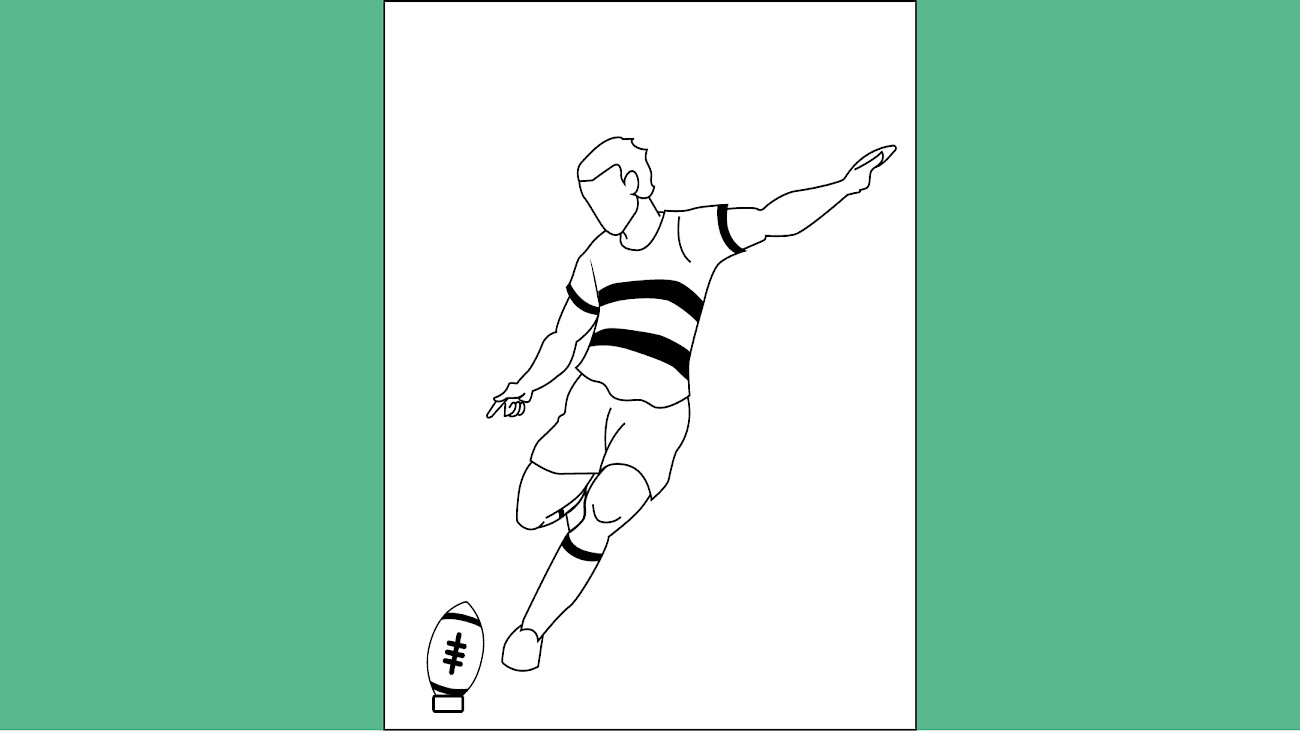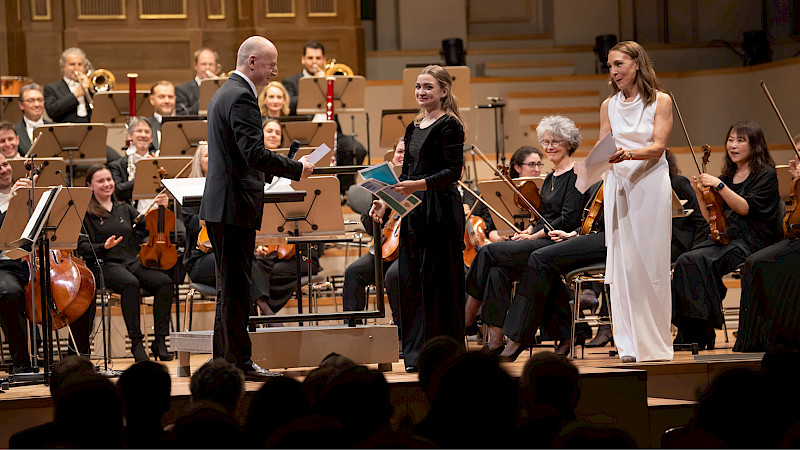
This run is marvellous!
When Arthur Honegger's "Rugby" is on the programme, the concert hall becomes a stadium. Our live reporter is already ready.
Welcome to the concert hall, ladies and gentlemen, an exciting match awaits us, even without grass and ball and goalposts: "Rugby" is being played, a symphonic movement composed in 1928 by the French-Swiss composer Arthur Honegger, and the teams are already warming up in the warm-up rooms. The coaches are also getting ready, and yes, you heard right, there are several of them: Because the match is taking place as part of the Conductors' Academy, six candidates will be conducting "Rugby" - observed and advised by head coach Paavo Järvi.
There are still five minutes to go until kick-off, which - I can already reveal this much - will be taken over by flutes, trumpets and strings in this match. Until then, I would like to use the time to tell you a little about this game. Arthur Honegger knew what he was composing, he was an active sportsman himself, and he spent his weekends as a spectator at the Yves-du-Manoir stadium in the Parisian suburb of Colombes, playing football, or even better, rugby, because this sport appealed to him more: because of the "wilder, more sudden, more desperate and less regular rhythm".
But whether football or rugby, the atmosphere in the stadium, this atmosphere that you are experiencing right now, ladies and gentlemen: it electrified Arthur Honegger, he wanted to convey it in this piece, these colours, this energy, the power, the movement, the agonistic confrontation ... He did not have programme music about specific game situations in mind, but you will hear it: The fact that this is about rugby and not, say: Curling - this music makes that unmistakably clear.
And now, ladies and gentlemen, the teams take to the field - here's the remarkably cleverly orchestrated whistle, and off we go. It's a turbulent start, a little bumpy at first, it goes back and forth, but then: a fantastic pass, the trombones have a good run, almost triumphant. Yes, that sets the tone for the first theme!
But now there are also the other registers, the game is pretty fragmented right now, none of the teams can really play themselves free. Fanfares. Trills. Impressive footwork from the basses.
And now the violins and flutes triumph! Yes, they also dominate this first theme. Marvellous, this run, the lower registers try to intervene, but in vain - no, now they're back again! What a feint by the brass, ladies and gentlemen, what intensity! You realise that I can hardly keep up with my commentary, it's already going back and forth again and all over the place. Actions are started and stopped, neither team can really pull off their game plan.
Another catch. It's marvellous how the violins play themselves free. An extremely correct game, by the way, ladies and gentlemen, the teams give each other nothing, full physical effort, full energy - but so far there have been no major scratches, even though, for obvious reasons, they are playing without the otherwise obligatory mouthguard.
Now it suddenly becomes quiet, but this calm is deceptive, something is building up. The teams wait for their chances, wait and see, fuelling each other until - there, a new theme! The high strings lead the way, the horns join in, spreading out across the field in an almost relaxed manner. Amazing.
But now they have come to nothing, the attack and counter-attack continue, they reorganise themselves. The rhythm of the moves is fantastic. And how the woodwinds respond to the new tactics and the strings' new theme! Yes, when you experience it like that, ladies and gentlemen, you can only wonder why sport has not served as a source of musical inspiration more often. Charles Ives organised a "Yale-Princeton Football Game" in 1898, and Erik Satie staged "Sports et divertissements" as a piano cycle in 1914. Claude Debussy's tennis ballet "Jeux" from 1912 should also be mentioned, but there wasn't much else.
On the court, the game has now reached its final phase. There's no sign of exhaustion, the teams are giving their all and it remains dynamic until the very last moment. It is a sublime moment, a final point in radiant D major, because it was a great game, ladies and gentlemen. It lasted around eight minutes, and if you ask me whether it was a tenth of a real rugby match or ten times the intensity of an entire game, then I would undoubtedly argue in favour of the latter.
But I can't answer the question of who won, and perhaps that's the beauty of it: In music, everyone wins.
And with that, I return to the studio.
Translated with DeepL.com
Conductors' Academy
Would you like to be there live when six young conductors rehearse Honegger's "Rugby" and other works with Paavo Järvi? Then you can do so free of charge at the Grosse Tonhalle - or anywhere in the world via streaming.





